Related Research Articles
John Holland, 1st Duke of Exeter, 1st Earl of Huntingdon, KG, of Dartington Hall in Devon, was a half-brother of King Richard II (1377–1399), to whom he remained strongly loyal. He is primarily remembered for being suspected of assisting in the downfall of King Richard's uncle Thomas of Woodstock, 1st Duke of Gloucester (1355–1397) and then for conspiring against King Richard's first cousin and eventual deposer, Henry Bolingbroke, later King Henry IV (1399–1413).

Walter Hungerford, 1st Baron Hungerford was an English knight and landowner, from 1400 to 1414 a Member of the House of Commons, of which he became Speaker, then was an Admiral and peer.
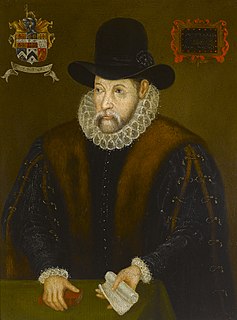
John HookeraliasJohn Vowell of Exeter in Devon, was an English historian, writer, solicitor, antiquary, and civic administrator. From 1555 to his death he was Chamberlain of Exeter. He was twice MP for Exeter in 1570/1 and 1586, and for Athenry in Ireland in 1569 and wrote an influential treatise on parliamentary procedure. He wrote an eye-witness account of the siege of Exeter during the Prayer Book Rebellion in 1549. He spent several years in Ireland as legal adviser to Sir Peter Carew, and following Carew's death in 1575 wrote his biography. He was one of the editors of the second edition of Raphael Holinshed's Chronicles, published in 1587. His last, unpublished and probably uncompleted work was the first topographical description of the county of Devon. He founded a guild of Merchant Adventurers under a charter from Queen Mary. He was the uncle of Richard Hooker, the influential Anglican theologian.
Richard Courtenay was an English prelate and university chancellor, who served as Bishop of Norwich 1413-15.
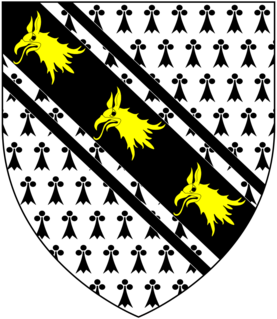
Walter Yonge (1579–1649) of Great House in the parish of Colyton in Devon, England, was a lawyer, merchant and diarist.
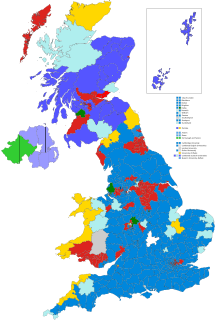
Barnstaple was a constituency centred on the town of Barnstaple in Devon, in the South West of England. It returned two Members of Parliament to the House of Commons of the Parliament of the United Kingdom until 1885, thereafter, one.
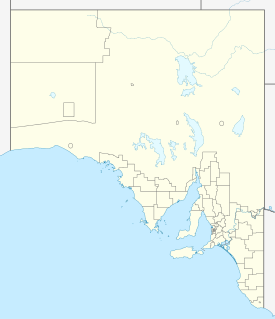
Devon Park is an inner northern suburb of Adelaide, South Australia. It is located in the cities of Port Adelaide Enfield and Charles Sturt beside the Gawler railway line near, but not meeting, the intersection of Torrens Road and Churchill Road.
Sir William Hankford KB of Annery in Devon, was an English lawyer, and Chief Justice of the King's Bench from 1413 until 1423.

Henry Reginald Courtenay (1741–1803) was an English Bishop of Bristol (1794–1797) and Bishop of Exeter 1797–1803.
Edmund Arnold or Arnaud, of Dartmouth, Devon and Gascony, was an English politician.
John Grey of Exeter, Devon, was an English politician.
Richard Bosom, of Exeter, Devon, was an English politician.
William Wilford, of Exeter, Devon, was an English politician.
Thomas Eston, of Exeter, Devon, was an English politician.
John Pollow of Exeter, Devon, was an English politician.

The Bohun swan was a heraldic badge used originally in England by the mediaeval noble family of de Bohun, Earls of Hereford, and Earls of Essex.
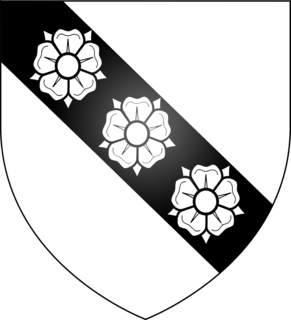
Sir Robert Cary of Cockington, Devon, was twelve times Member of Parliament for Devon, in 1407, 1410, 1411, May 1413, April 1414, Mar. 1416, 1417, 1419, May 1421, 1422, 1425 and 1426. Much of his later life was devoted to regaining the many estates and other landholdings forfeited to the crown following his father's attainder in 1388. He was an esquire in the households of King Richard II (1377–1399) and of the latter's half-brother John Holland, 1st Duke of Exeter.

Bindon is an historic manor in the parish of Axmouth in Devon, England.

Sir John Wadham (c.1344–1412) was a Justice of the Common Pleas from 1389 to 1398, during the reign of King Richard II (1377–1399), selected by the King as an assertion of his right to rule by the advice of men appointed of his own choice, and one of the many Devonians of the period described by Thomas Fuller in his Worthies of England, as seemingly "innated with a genius to study law".
References
- ↑ "STURT (STERTE), Peter, of Exeter, Devon. - History of Parliament Online". www.historyofparliamentonline.org. Retrieved 19 January 2018.